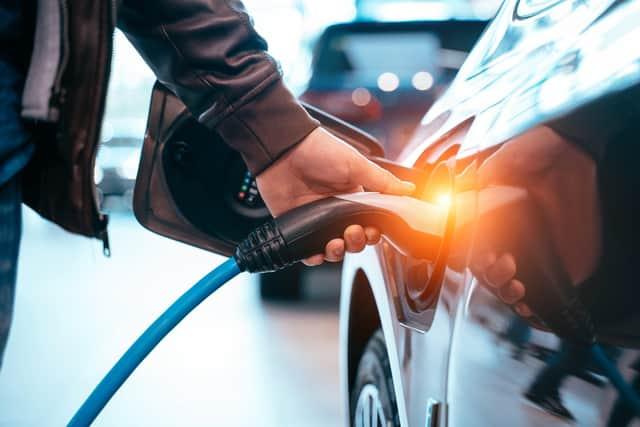No NI councils start to plan for electric vehicles
and live on Freeview channel 276
Responses to freedom of information requests by the FairCharge campaign shared with the PA news agency found only 28% of local authorities in the UK (three in 10) have released a strategy for supporting the switch to electric motoring.
A further 23% said they are in the process of devising a plan.
Advertisement
Hide AdAdvertisement
Hide AdLondon is the region with the highest proportion of councils with a published strategy, at 57%.


It is followed by the West Midlands (44%), Scotland (38%) and the North West (30%).
At the other end of the scale are Northern Ireland (0%), the East Midlands (10%) and Wales (13%).
The Department for Transport’s (DfT) EV Infrastructure Strategy, released last month, said the government will “transform local on-street charging by putting an obligation on local authorities (subject to consultation) to develop and implement local charging strategies”.
Advertisement
Hide AdAdvertisement
Hide AdThe document added that local leadership is “essential to creating new investment opportunities and inspiring local confidence in EVs”.
In a recent response to a parliamentary question on EVs, minister for energy, clean growth and climate change Greg Hands said the government will “monitor and engage with local authorities as they progress with their strategies”.
FairCharge spokesman Quentin Willson, a former Top Gear presenter, said: “The figures revealed from councils in our freedom of information requests are extremely worrying.
“BEIS (Department for Business, Energy and Industrial Strategy) and DfT say that local authorities are best placed to consider local needs.
Advertisement
Hide AdAdvertisement
Hide Ad“This of course is true, but we can see today that without a big role for central government in supporting councils, there is a real chance that much of country will be left behind in terms of public charging infrastructure.
“Councils clearly need to up their game too, but there needs to be direction and oversight from central government.”
EV owners without access to off-road parking at home often rely on public chargepoints installed by councils.
Mr Willson went on: “The figures are so concerning because they mean that many people – such as those without driveways – will be hindered from taking part in the EV revolution.”
Advertisement
Hide AdAdvertisement
Hide AdThe sale of new petrol and diesel cars and vans will be banned in the UK from 2030.
Plug-in vehicles – which include pure electrics and plug-in hybrids – accounted for more than one in six new cars registered in the UK in 2021.